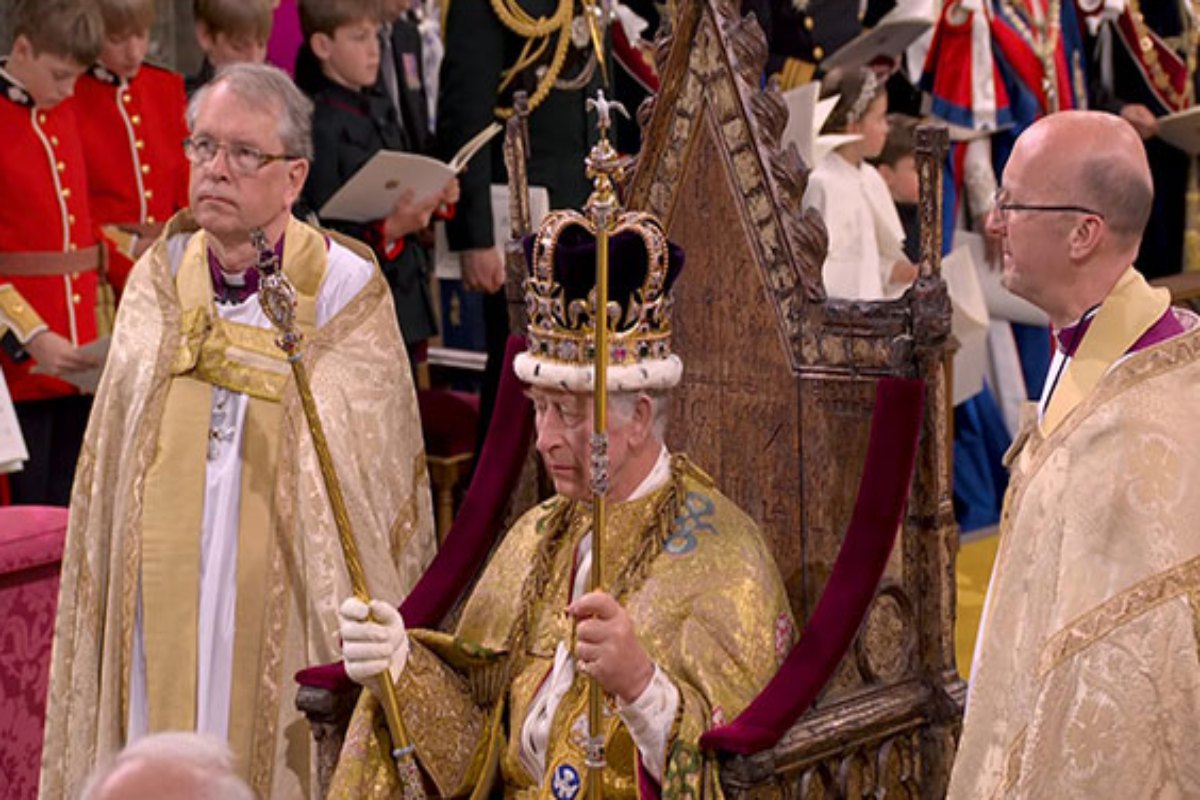King Charles III must know that many Scots favour independence. This week he was told by several of them that they do not fancy the institution he presides over either. While protests at the ceremony where he was presented Scotland’s crown jewels were expected, their intensity and the fact they were led by a serving Minister must have caused even the royal eyebrow to twitch. Posters saying “Not my King” greeted him as he made the short drive from the royal residence to St. Giles’ Cathedral, and republicans protested within earshot, to complain about the extravagant rigmarole being thrust down their throats. Minister Patrick Harvie told reporters that having a monarch enriched by untaxed, inherited health did not fit in with Scotland’s desire for a modern democracy.
“What we’ve seen over the last few months is a genuinely extraordinary attempt to lavish your money, our money, on some of the wealthiest people, not just in this country, but some of the wealthiest people in the world, so that they can do some sort of overpriced Game of Thrones cosplay exercise,” he said. Fatigue with the monarchy has grown and many characterise it as an anachronism that has no place in the modern world. While 60 per cent of the people in the United Kingdom still support the institution, the numbers are dropping. At the time of Charles’ coronation a few weeks ago, that number was 62. And only 45 per cent of Scots support the institution. Scotland’s First Minister Humza Yousuf participated in the ceremonial events.
Advertisement
But he is a declared republican, and the King must have been aware of the disdain with which he has in the past spoken of the monarchy. Mr. Yousuf is on record as saying he will want Scotland to have a referendum on becoming a republic within five years of independence. As the working classes in the Kingdom struggle to make ends meet in the face of high inflation, and are forced to strike work to seek wage increases that at least cover inflationary trends, the expense lavished on the Palace galls many. The shenanigans of some members of the King’s family do not help the royal cause either. While the British reverence for tradition, and of course a propensity for eccentricity, has given the institution legs, a limp is now beginning to show. Indeed, a suggestion from the government that Britons would be called upon to swear an oath of allegiance during his coronation in May, was met with derision, many calling it half-cocked and tone-deaf.
The government back-pedalled furiously to say it was an invitation to participate, not an expectation. Charles does not command either the love or the admiration his mother did, with many Britons finding him a controversial figure. His muddled personal life has not helped, and while the revulsion he drew in the aftermath of Princess Diana’s death may have subsided, the scars remain.









